Abstract
The Tuskegee Syphilis Study continues to cast its long shadow on the contemporary relationship between African Americans and the biomedical community. Numerous reports have argued that the Tuskegee Syphilis Study is the most important reason why many African Americans distrust the institutions of medicine and public health. Such an interpretation neglects a critical historical point: the mistrust predated public revelations about the Tuskegee study. This paper places the syphilis study within a broader historical and social context to demonstrate that several factors have influenced--and continue to influence--African American's attitudes toward the biomedical community.
Full text
PDF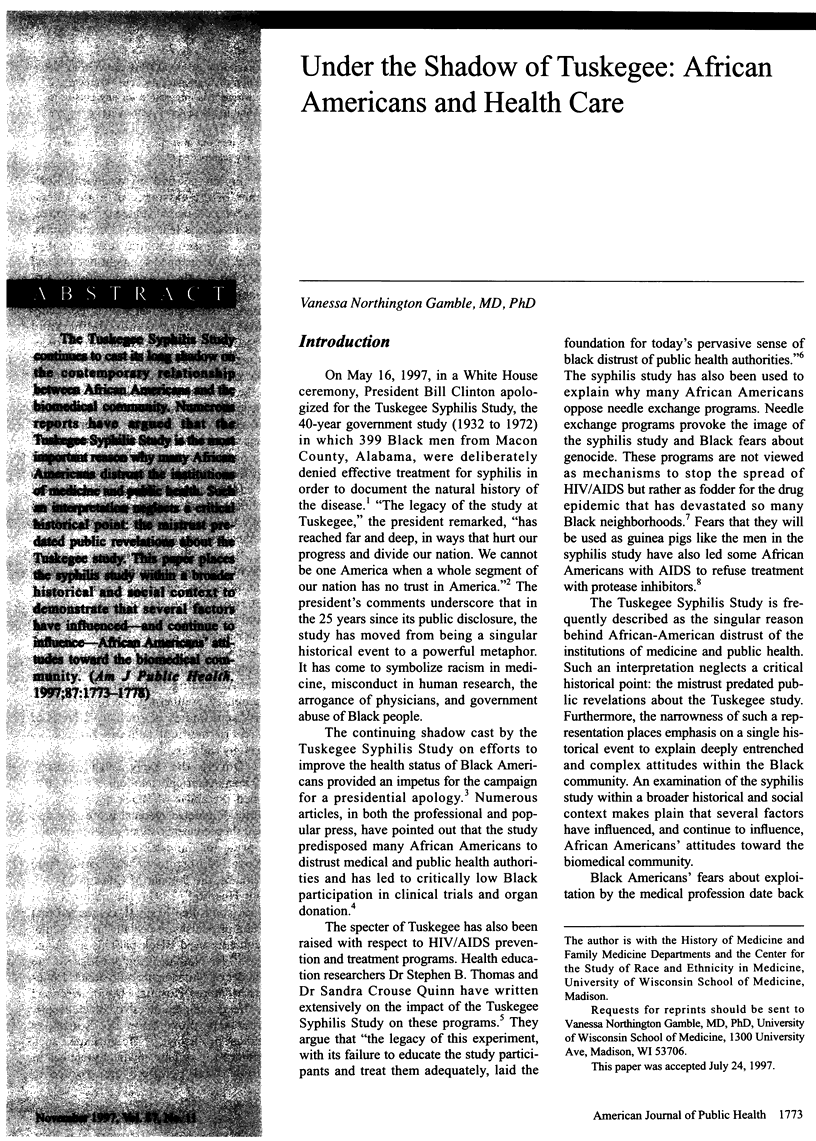
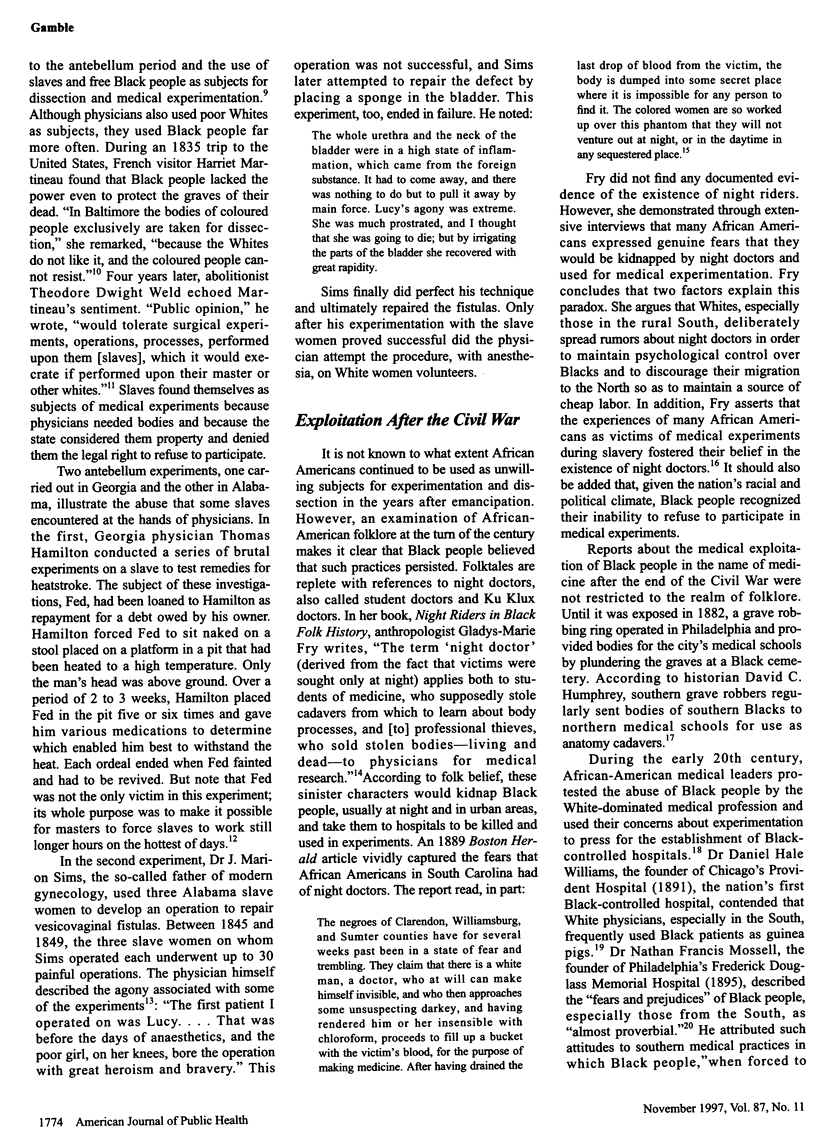
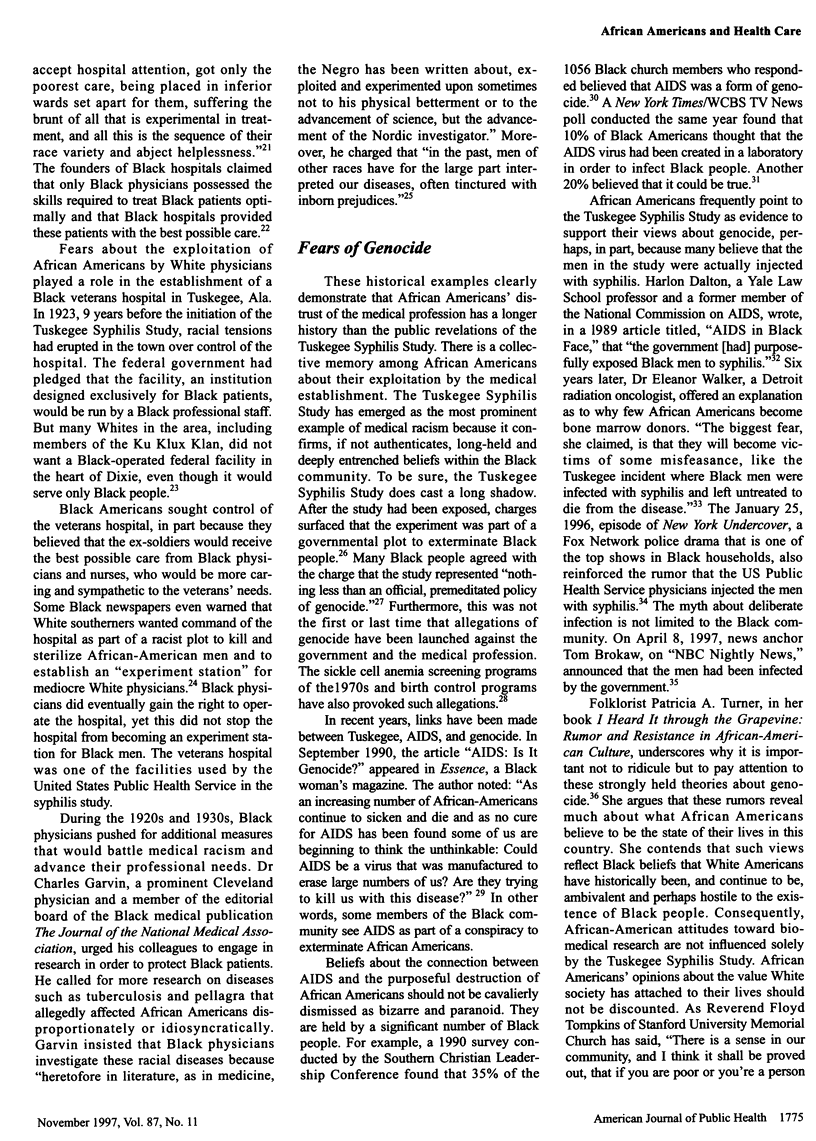
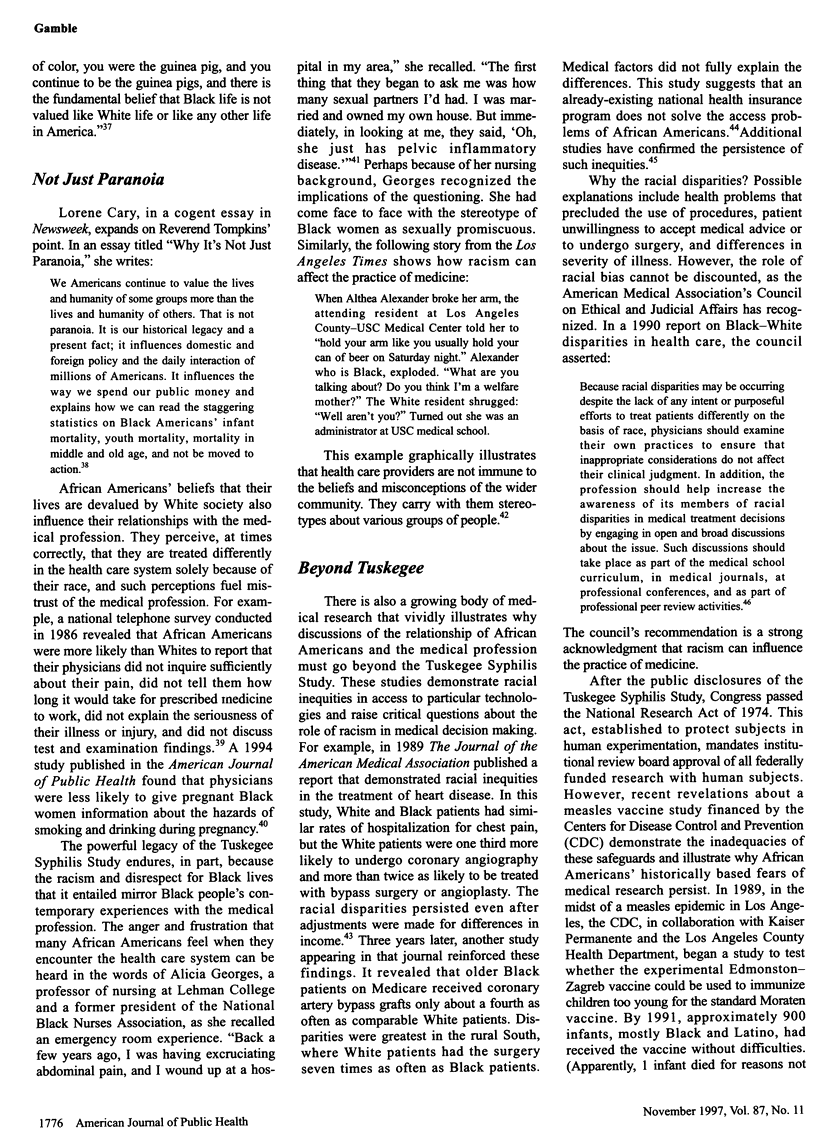
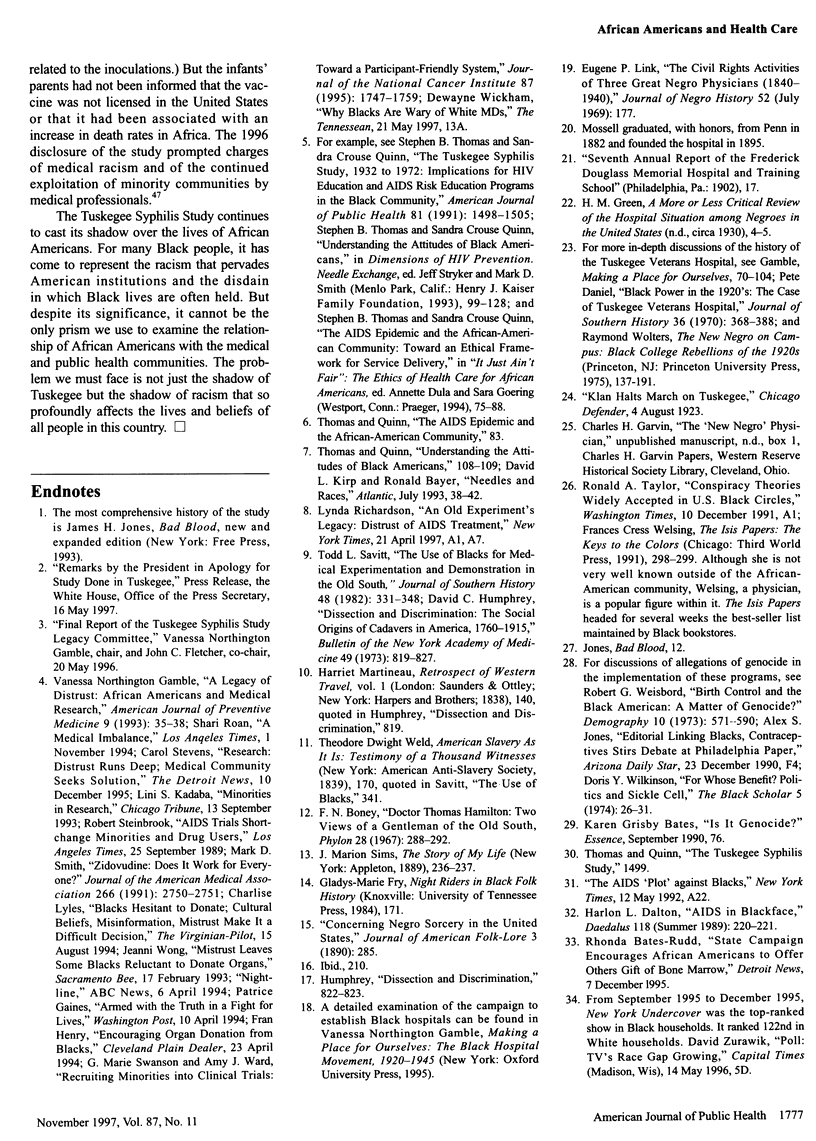
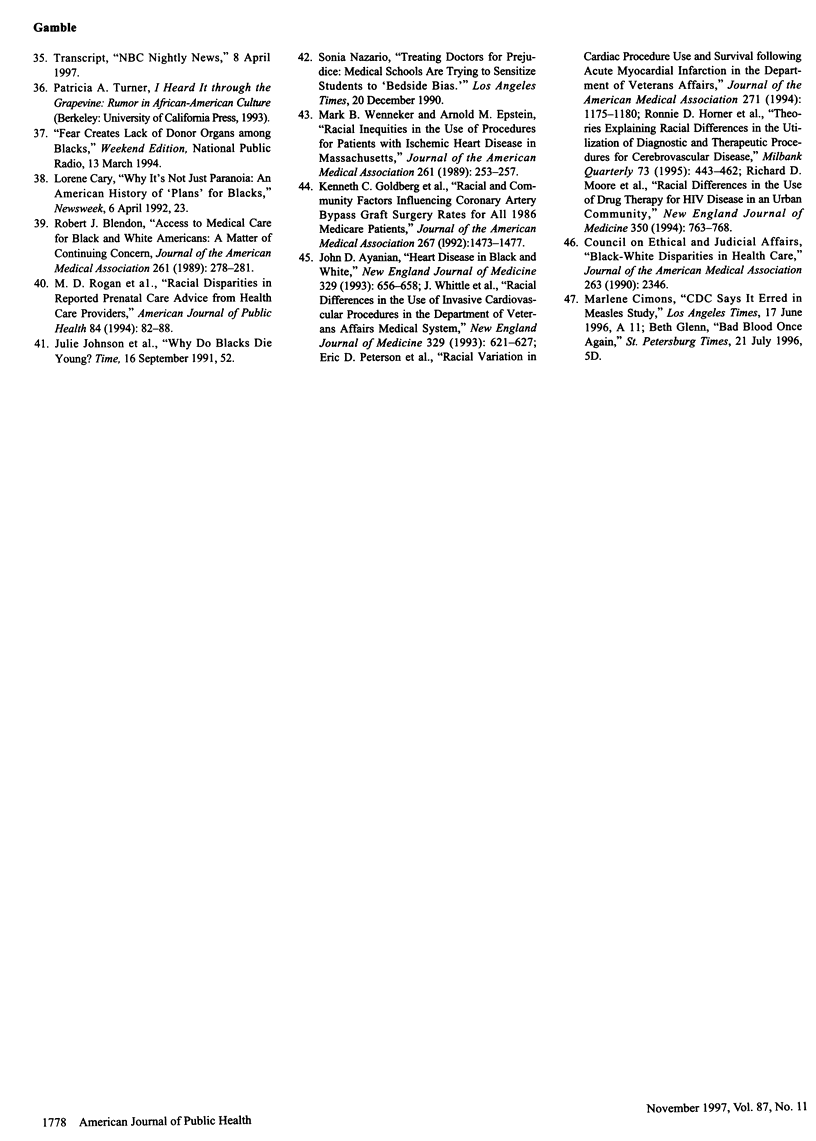
Selected References
These references are in PubMed. This may not be the complete list of references from this article.
- Blendon R. J., Aiken L. H., Freeman H. E., Corey C. R. Access to medical care for black and white Americans. A matter of continuing concern. JAMA. 1989 Jan 13;261(2):278–281. [PubMed] [Google Scholar]
- Daniel P. Black power in the 1920's: the case of Tuskegee Veterans Hospital. J South Hist. 1970;36:368–388. [PubMed] [Google Scholar]
- Gamble V. N. A legacy of distrust: African Americans and medical research. Am J Prev Med. 1993 Nov-Dec;9(6 Suppl):35–38. [PubMed] [Google Scholar]
- Goldberg K. C., Hartz A. J., Jacobsen S. J., Krakauer H., Rimm A. A. Racial and community factors influencing coronary artery bypass graft surgery rates for all 1986 Medicare patients. JAMA. 1992 Mar 18;267(11):1473–1477. [PubMed] [Google Scholar]
- Moore R. D., Stanton D., Gopalan R., Chaisson R. E. Racial differences in the use of drug therapy for HIV disease in an urban community. N Engl J Med. 1994 Mar 17;330(11):763–768. doi: 10.1056/NEJM199403173301107. [DOI] [PubMed] [Google Scholar]
- Peterson E. D., Wright S. M., Daley J., Thibault G. E. Racial variation in cardiac procedure use and survival following acute myocardial infarction in the Department of Veterans Affairs. JAMA. 1994 Apr 20;271(15):1175–1180. [PubMed] [Google Scholar]
- Savitt Todd L. The use of blacks for medical experimentation and demonstration in the Old South. J South Hist. 1982 Aug;48(3):331–348. [PubMed] [Google Scholar]
- Swanson G. M., Ward A. J. Recruiting minorities into clinical trials: toward a participant-friendly system. J Natl Cancer Inst. 1995 Dec 6;87(23):1747–1759. doi: 10.1093/jnci/87.23.1747. [DOI] [PubMed] [Google Scholar]
- Thomas S. B., Quinn S. C. The Tuskegee Syphilis Study, 1932 to 1972: implications for HIV education and AIDS risk education programs in the black community. Am J Public Health. 1991 Nov;81(11):1498–1505. doi: 10.2105/ajph.81.11.1498. [DOI] [PMC free article] [PubMed] [Google Scholar]
- Weisbord R. G. Birth control and the black American: a matter of genocide? Demography. 1973 Nov;10(4):571–590. [PubMed] [Google Scholar]
- Wenneker M. B., Epstein A. M. Racial inequalities in the use of procedures for patients with ischemic heart disease in Massachusetts. JAMA. 1989 Jan 13;261(2):253–257. [PubMed] [Google Scholar]
- Whittle J., Conigliaro J., Good C. B., Lofgren R. P. Racial differences in the use of invasive cardiovascular procedures in the Department of Veterans Affairs medical system. N Engl J Med. 1993 Aug 26;329(9):621–627. doi: 10.1056/NEJM199308263290907. [DOI] [PubMed] [Google Scholar]
- Wilkinson Doris Y. For whose benefit? Politics and sickle cell. Black Scholar. 1974 May;5(8):26–31. doi: 10.1080/00064246.1974.11431415. [DOI] [PubMed] [Google Scholar]


